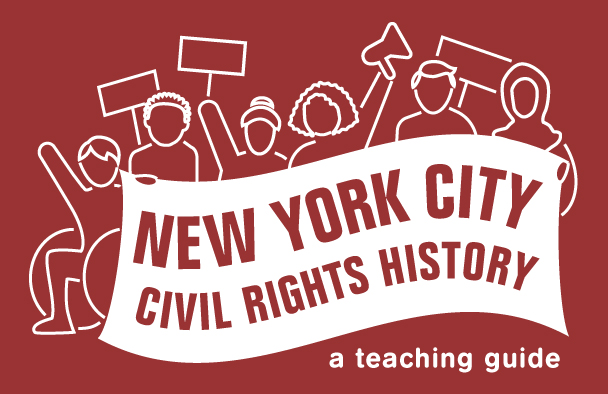You are here:
Jansen Must Go!

Date: July 1957
Caption: This flier encouraged parents and others concerned about Black and Puerto Rican children to call for Superintendent William Jansen’s resignation.

Harlem residents like Ella Baker and Mae Mallory, alongside other parents and community members in Brooklyn and in Jamaica, Queens, pushed the New York City Board of Education to integrate their schools. They gathered information about conditions in schools serving Black and Latinx students, and conducted “street meetings” where parents and interested community members could talk with each other about their concerns.
Ella Baker was one of the founders of the group Parents In Action Against Educational Discrimination. She was a veteran activist who had worked in Harlem, New York City, and across the South for nearly two decades. But she was not interested in becoming a figurehead or a celebrated public voice of a movement. She wanted to organize in a way that helped everyone learn and develop their own leadership skills.1 She said that “strong people don’t need strong leaders.”2
This flier focuses on Superintendent of Schools William Jansen. Jansen had been in charge of New York’s schools since 1947, and he frequently commented publicly that any patterns of racial segregation in the schools were not the fault of decisions that he or the Board of Education had made. He described New York’s schools as “separated,” but not “segregated.”3 In addition to being a superintendent, Jansen was also the author of textbooks widely used in New York schools. His book Distant Lands depicted African civilizations as “very backward” and described colonization as “helping develop the region.” This racist text drew criticism from teachers in the Teachers Union (which included Lucile Spence) and parents, who published a 1951 pamphlet called Bias and Prejudice in Textbooks in the New York City Schools: An Indictment.4
-
Barbara Ransby, Ella Baker and the Black Freedom Movement (Chapel Hill: University of North Carolina Press, 2003). ↩︎
-
Quoted in Carol Muller, “Ella Baker and the Origins of ‘Participatory Democracy,’" in Women in the Civil Rights Movement: Trailblazers and Torchbearers, 1941-1965, ed. Vicki Crawford et al. (Bloomington, IN: Indiana University Press, 1993). ↩︎
-
Michael R. Glass, “From Sword to Shield to Myth: Facing the Facts of De Facto School Segregation,” Journal of Urban History 44, no. 6 (November 2016): 1197-1226. ↩︎
-
Jonna Perrillo, Uncivil Rights: Teachers, Unions, and Race in the Battle for School Equity (Chicago: University of Chicago Press, 2012), 89-90. ↩︎
Categories: K-12 organizing, community activism, parent activism"
Tags: white people, racist segregation, protest, Harlem, zoning and student assignment, women's activism
This item is part of "Mae Mallory and the “Harlem Nine”" in "Black and Latina Women’s Educational Activism"
Item Details
Date: July 1957
Creator: Parents in Action Against Educational Discrimination
Source: Ella Baker Papers, Schomburg Center for Research in Black Culture, New York Public Library
Copyright: Public domain. Courtesy of the Schomburg Center for Research in Black Culture.
How to cite: “Jansen Must Go!,” Parents in Action Against Educational Discrimination, in New York City Civil Rights History Project, Accessed: [Month Day, Year], https://nyccivilrightshistory.org/gallery/jansen-must-go.
Questions to Consider
- What feelings do you think this flier is trying to convey? How does it do so? What choices - about language, about design - help it communicate?
- What do you think Parents in Action Against Educational Discrimination wanted people to do after seeing the flier?
- How are their arguments about New York City schools similar to or different from others that you have seen in other sources?
References
How to Print this Page
- Press Ctrl + P or Cmd + P to open the print dialogue window.
- Under settings, choose "display headers and footers" if you want to print page numbers and the web address.
- Embedded PDF files will not print as part of the page. For best printing results, download the PDF and print from Adobe Reader or Preview.
